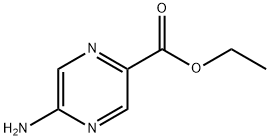With Saudi Aramco pumping billions into petrochemicals despite SABIC’s massive losses, is this a strategic masterstroke—or a dangerous gamble on oversupplied markets?
Can Saudi Aramco’s Petrochemical Bet Survive a Glutted Market?
Related Encyclopedia

- 115-07-1
- C3H6
- 42.08
- All (4)
- China (4)
- (4)
![[4-[(E)-2-(5,5,8,8-tetramethyl-6,7-dihydronaphthalen-2-yl)prop-1-enyl]phenyl]methanol](https://chemcloud-1304660855.cos.ap-shanghai.myqcloud.com/compound/50d21f6fcaa34dec91920183ac1c1739.png?imageMogr2/format/webp)
- 71441-30-0
- C24H30O
- 334.49400
- All (0)
- China (0)
- (0)
![2,3-di(hexadecanoyloxy)propyl 2-[2-[(1E,3E,5E,7E)-2,6-dimethyl-8-(2,6,6-trimethylcyclohexen-1-yl)octa-1,3,5,7-tetraenyl]-4-[(1E,3E,5E)-4-methyl-6-(2,6,6-trimethylcyclohexen-1-yl)hexa-1,3,5-trienyl]pyridin-1-ium-1-yl]ethyl phosphate](https://chemcloud-1304660855.cos.ap-shanghai.myqcloud.com/compound/19fb35bc1f8b44db8b7e2d891b73eb1d.png?imageMogr2/format/webp)
- 1312036-18-2
- C34H18S2
- 490.63700
- All (0)
- China (0)
- (0)

- 178119-00-1
- C49H90N5O11P
- 956.24000
- All (0)
- China (0)
- (0)

- 1192750-33-6
- C35H35N5O4
- 589.68
- All (0)
- China (0)
- (0)

- 185689-49-0
- C15H24O3
- 252.34900
- All (0)
- China (0)
- (0)
- 856650-33-4
- BF3O2S
- 131.87000
- All (0)
- China (0)
- (0)
- 72734-74-8
- C15H14O2
- 226.27000
- All (0)
- China (0)
- (0)
- 1100058-12-5
- C3H3O3V
- 137.99600
- All (0)
- China (0)
- (0)
Related Products More >
-
- CNY Request For Quotation
-
- 63231-66-3
- CNY Request For Quotation
-
- CNY Request For Quotation
-
- CNY Request For Quotation
-
- CNY Request For Quotation
-
- CNY Request For Quotation
-
- CNY Request For Quotation
-
- CNY Request For Quotation




Saudi Aramco just dropped a bombshell: They’re spending like crazy on petrochemicals—up 33% this year to $51 billion (191.3B SAR). From Korea’s Shaheen project to China’s Hapco megacomplex, they’re doubling down on turning oil into chemicals. But here’s the twist: Their own subsidiary SABIC lost $10.8B (40.7B SAR) last quarter. So… what’s the real deal?
1. The "Oil-to-Chemicals" Obsession
Aramco’s betting big on COTC (Crude-to-Chemicals), aiming to convert 4M barrels/day of oil directly into plastics/chemicals by 2030. Their logic?
"Oil demand will fade, but plastics? Never."
China/Korea partnerships lock in Asian market dominance.
Cheap Saudi gas = unbeatable ethylene/PE margins.
But critics whisper: "Dude, the world’s already drowning in plastic!" With SABIC bleeding cash from oversupply, is Aramco ignoring the warning signs?
2. Health & Environmental Red Flags
More crackers = more ethylene oxide (carcinogen), benzene (leukemia risk), and CO₂ emissions. Key concerns:
China’s Hapco project sits near Bohai Bay—already a pollution hotspot.
Saudi’s Amiral expansion could spike PM2.5 levels in Jubail.
Microplastics backlash: If ESG rules tighten, Aramco’s plastic dreams could crash.
3. Trade Wars & Geopolitics
Aramco’s playing 4D chess with global trade:
Korea’s Shaheen complex = backdoor into EV battery materials (think propylene for lithium-ion separators).
China investments hedge against U.S. sanctions.
But… If Europe slaps carbon taxes on Saudi polypropylene, profits could vanish.
Latest Developments & Strategic Moves
Aramco’s H1 2025 earnings reveal a 33.1% surge in petrochemical spending, driven by three mega-projects:
Shaheen Project (South Korea): 75% complete, set to process crude-to-chemicals (COTC) at record efficiency, producing ethylene, propylene, and aromatics for Asia’s plastics market.
Hapco Complex (China): 70% finished, integrating refining and chemical production to supply China’s automotive and packaging sectors.
Amiral Expansion (Saudi Arabia): A $11B expansion at SATORP, boosting polyethylene and glycols output for global exports.
Despite SABIC’s Q2 net loss widening to 40.7B SAR, Aramco remains committed to its 2030 goal of converting 4M barrels/day of oil into chemicals, betting on long-term demand for plastics and synthetic materials.
Real-World Impact & Future Scenarios
For Consumers: More cost-effective plastics for packaging, textiles, and EV components.
For Energy Transition: Aramco’s COTC strategy could lower emissions per barrel by maximizing chemical yield—potentially making oil-based materials more sustainable.
For Markets: If demand rebounds post-2026, Aramco’s early investments could dominate Asia’s petrochemical supply chain.
Aramco’s advantages include low-cost feedstock from its vast oil reserves and strategic partnerships (e.g., SABIC integration). Yet, a prolonged petrochemical glut could pressure margins, especially if recycling trends or regional competitors like China undercut pricing. The company’s long-term bet hinges on leveraging scale and vertical integration to withstand cyclical downturns while positioning for Asia’s growing consumption. Success will depend on balancing capacity expansion with market flexibility—avoiding the pitfalls of overreliance on a single sector, as seen in past oil shocks.